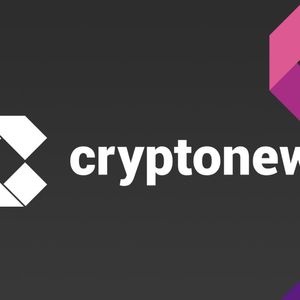Disclosure: The views and opinions expressed here belong solely to the author and do not represent the views and opinions of crypto.news’ editorial. In today’s digital economy, a handful of tech conglomerates hold unprecedented control over the most valuable resource of the modern age: user-generated data. Companies like Google, Meta, and Amazon have built massive data empires by collecting, storing, and monetizing the personal information of billions of users. This centralization of data stifles competition, limits innovation, and creates data silos where access is restricted to only a few. You might also like: Key strategies on how to make DePIN mainstream | Opinion While the concept of decentralized physical infrastructure networks —otherwise known as DePINs for short—has successfully mobilized users to participate in decentralized infrastructures—data remains one of the most underserved segments. This is where a new vertical of DePIN, data curation networks (DCN), comes into play. DCN, a term that refers to decentralized networks that capture and curate data directly from users, can offer a groundbreaking solution to break free from these data silos. DCNs represent a particularly good opportunity for the vastly growing AI market. AI demands high-quality, unique datasets to function optimally, and large datasets are essential for training models, improving systems, and powering the next generation of applications. DCNs can also address regulatory concerns about AI bias by creating diverse and open human-generated datasets. Decentralizing data collection for AI through data curation networks DePIN’s market cap has already surpassed $50 billion, and it is estimated to reach a potential market value of 3.5 trillion by 2028. This showcases the potential of decentralized networks to shift data ownership back to users and allow them to profit from their contributions. DePINs offer a transformative solution by shifting data collection away from corporate giants and putting it back into the hands of individuals. As AI technology evolves, the demand for diverse and high-quality data will only increase. Centralized corporations are ill-equipped to capture the full range of data needed for many AI use cases. Unlike corporate-controlled datasets, which are often biased by the platform’s user base or limited by the company’s reach, DePIN networks can pull in data from a wide range of sources. This leads to more comprehensive and diverse datasets, which are essential for building better, more inclusive AI models, and generating new use case possibilities. Take, for example, the development of self-driving vehicles. Autonomous systems require massive amounts of real-time data on traffic patterns, road conditions, and driver behavior to function safely and efficiently. Traditionally, this data has been gathered by large corporations with access to connected vehicles and road sensors. The buildout for centralized entities is costly, requiring infrastructure investment and significant man-hours. Rather than build this infrastructure and assemble a workforce specifically for the task, crypto networks can incentivize people to turn their edge devices into data collectors, passively collecting valuable data throughout the course of their normal day. This enables geographically diverse data to be curated in a significantly more efficient manner, and results in organic datasets ripe for AI training. Self-driving vehicles are one of many examples where decentralized networks could gather critical data to improve safety and performance. The combination of real-time data from decentralized sources and AI’s analytical power could revolutionize industries from transportation to healthcare. Fueling AI innovation while rewarding users AI models developed for human needs have to rely on human-generated data as a source of truth for model training. As more and more IoT and wearable devices become equipped with compute power and AI-accelerated chips, and with billions of connected commodity devices such as smartphones, edge-powered DCNs have the potential for massive scaling, exponentially increasing their reach and capacity, putting data curation on steroids by streamlining data collection, and enhancing the quality of datasets available. Instead of requiring users to invest in new hardware, commodity-based DCNs utilize devices that are already part of people’s daily lives, like smartphones and laptops. This significantly reduces the hurdles that often come with the manufacturing and distribution of hardware, significantly simplifies the onboarding process, and allows for seamless participation from users with nearly no initial cost. In the emerging landscape of DCNs, meaningful datasets are often curated by coordinating existing physical infrastructure supported by innovative crypto incentives. For instance projects, some projects in the web3 space offer web scraping services through the Chrome extension for personal computers while others leverage smartphone cameras for mapping showcase that by tapping into existing infrastructure, commodity-based DCNs lower the barriers to adoption. In this new paradigm, users are the real benefactors. They gain control over their data, enjoy the financial rewards of contributing to decentralized networks, and stand to benefit from the AI-driven innovations that these networks enable. This not only creates a more equitable digital ecosystem but also encourages broader participation in the data economy, ensuring that AI advancements are driven by the needs and contributions of everyday people rather than the profit motives of a few large corporations. This article was co-authored by Alireza Ghods and Tommy Eastman . Read more: What DePIN got wrong and how to fix it | Opinion Author: Alireza Ghods & Tommy Eastman Alireza Ghods is the CEO and co-founder of NATIX. He has a Ph.D. in geospatial localization and ample experience as an R&D engineer in the geospatial data market, autonomous driving, and building local dynamic maps. Previously, he led IoT and Blockchain operations in Europe for PWC. Tommy Eastman , a research lead at Plaintext Capital, spent two years leading decentralized AI and DePIN efforts as a Software Engineer at Foundry. Previously, he worked at L3Harris, a defense contractor, where he built a foundational understanding of AI and real-world solutions through machine learning for object detection.



















